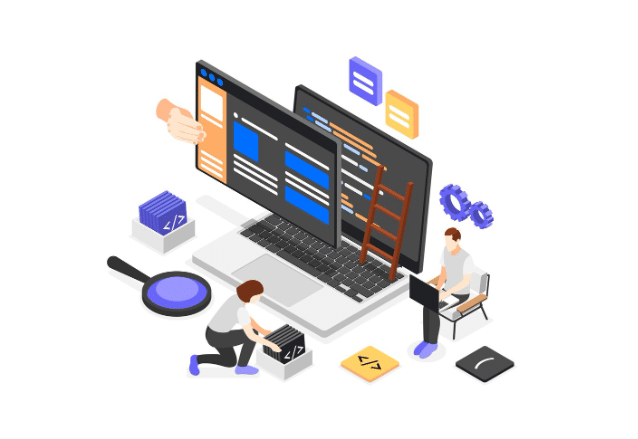
Precision manufacturing has always been a game of microns, margins, and meticulous measurements. Coordinate Measuring Machines (CMMs) have long been the backbone of quality assurance, but traditional methods are too slow, too rigid, and too reliant on human input.
AI is rewriting the rules. Today’s AI-powered CMM software doesn’t just measure—it learns, adapts, and optimizes in real-time. Manufacturers are seeing inspection times cut in half, defect rates drop dramatically, and a level of automation that makes old-school metrology look like a relic.
This isn’t just an evolution—it’s a fundamental shift in how precision is achieved. Let’s break down how AI is revolutionizing CMM software, why it matters, and what’s coming next.
The Problem with Traditional CMMs
For decades, CMMs have been the industry standard for high-precision measurement. But the process has been far from efficient.
- Manual Programming – Every part requires a technician to program specific measurement paths, which takes hours or even days for complex components.
- Slow Inspection Cycles – Traditional CMMs scan at fixed speeds, leading to bottlenecks in production when high-volume inspection is needed.
- Human Dependency – The accuracy of a CMM is only as good as the operator programming it. Errors, inconsistencies, and misinterpretations happen.
- Lack of Predictive Capabilities – Standard CMMs measure only after production, meaning defects are caught too late, leading to costly rework and material waste.
Manufacturers have accepted these inefficiencies for years—until AI entered the picture.
How AI is Making CMM Software Smarter
AI-driven CMM software is breaking free from traditional limitations. Instead of following rigid, pre-programmed measurement paths, AI enables CMMs to think, learn, and optimize in real time.
1. Self-Optimizing Measurement Paths
In traditional CMM programming, a technician sets the measurement path manually. AI changes this by analyzing past scans, part geometries, and manufacturing conditions to determine the most efficient path.
🔹 Result? AI-driven CMMs can cut cycle times by up to 50%, as seen in Intel’s AI-driven predictive maintenance.
2. Automated Feature Recognition
AI eliminates manual programming by recognizing part geometries automatically. Instead of an operator specifying measurement points, AI scans the entire component and identifies critical areas without human intervention.
🔹 Result? Airbus reports a 25% reduction in rework costs thanks to automated AI-driven metrology.
3. Predictive Error Detection
AI isn’t just measuring—it’s predicting. Instead of simply verifying dimensions, AI analyzes historical data and production conditions to spot potential defects before they happen.
🔹 Result? AI-powered CMMs have helped manufacturers reduce defect rates by 30%, according to a Deloitte study on AI-driven predictive maintenance.
The Business Case: How AI-Powered CMMs Boost ROI
AI isn’t just improving accuracy—it’s a financial game-changer. Manufacturers that adopt AI-driven CMM software are seeing measurable gains in speed, efficiency, and profitability.
1. Faster Time-to-Market
With AI optimizing CMM operations, inspection bottlenecks are eliminated, allowing products to reach customers faster.
🔹 Example: AI-driven CMMs helped Intel reduce manufacturing errors by 20%, speeding up production timelines.
2. Reduced Scrap and Rework Costs
Traditional quality control is reactive—AI is proactive. By detecting deviations early, manufacturers avoid wasted materials and costly recalls.
🔹 Impact: Aerospace manufacturers using AI-driven CMMs have reported a significant drop in production waste, aligning with Airbus’s metrology advancements.
3. Less Dependence on Highly Trained Specialists
AI automates many aspects of CMM operation, reducing the need for highly skilled metrology engineers.
🔹 Industry Shift: With AI handling complex measurements, companies are reallocating talent to higher-value tasks, improving overall efficiency.
4. Scalability & Flexibility for Rapid Design Changes
AI-powered CMMs can adapt to new part geometries instantly, making them ideal for industries with frequent design iterations, such as automotive, aerospace, and medical devices.
🔹 For businesses looking to integrate next-gen metrology solutions, CMMXYZ offers a range of cutting-edge CMM software and hardware solutions, bridging the gap between traditional and AI-powered precision measurement.
The Future of AI-Powered CMM Software
AI-driven metrology isn’t just improving what exists—it’s paving the way for fully autonomous quality control systems.
1. Real-Time Cloud Integration
Future CMM software will be fully connected to factory networks, allowing instant sharing of measurement data across global production lines.
🔹 Why it matters: Deloitte identifies real-time IoT integration as a critical trend in smart manufacturing.
2. Generative AI in Metrology
Generative AI will soon be able to design the most efficient measurement plans in seconds based on production conditions—no human input required.
🔹 The next frontier: AI will create measurement strategies tailored to specific materials, manufacturing methods, and environmental conditions.
3. AI + Robotics for Fully Autonomous Inspection
The future isn’t just smarter CMMs—it’s robotic AI-driven CMMs that inspect, analyze, and correct defects on the fly.
🔹 What’s coming: Fully autonomous metrology systems will be capable of adapting in real time, eliminating the separation between inspection and production.
Final Thought: AI is Taking Precision from Passive to Proactive
For decades, CMMs have been about checking and verifying—reacting to quality issues after they’ve already happened.
AI is turning that model upside down. Instead of waiting to measure parts at the end of production, AI-powered CMMs anticipate, adapt, and optimize in real time, ensuring defects never happen in the first place.
The companies embracing AI-powered metrology aren’t just improving their processes—they’re leading the future of manufacturing.
The rest? They’ll be playing catch-up.
The future of metrology isn’t just about measuring—it’s about mastering precision before it’s even needed.

Top 10 IT Certifications That Actually Boost Your Salary in 2026

Amazon Ads vs. Google Ads: Which Platform Drives Better eCommerce Sales?

Where to Buy a Passport Online for Uninterrupted Global Travel


